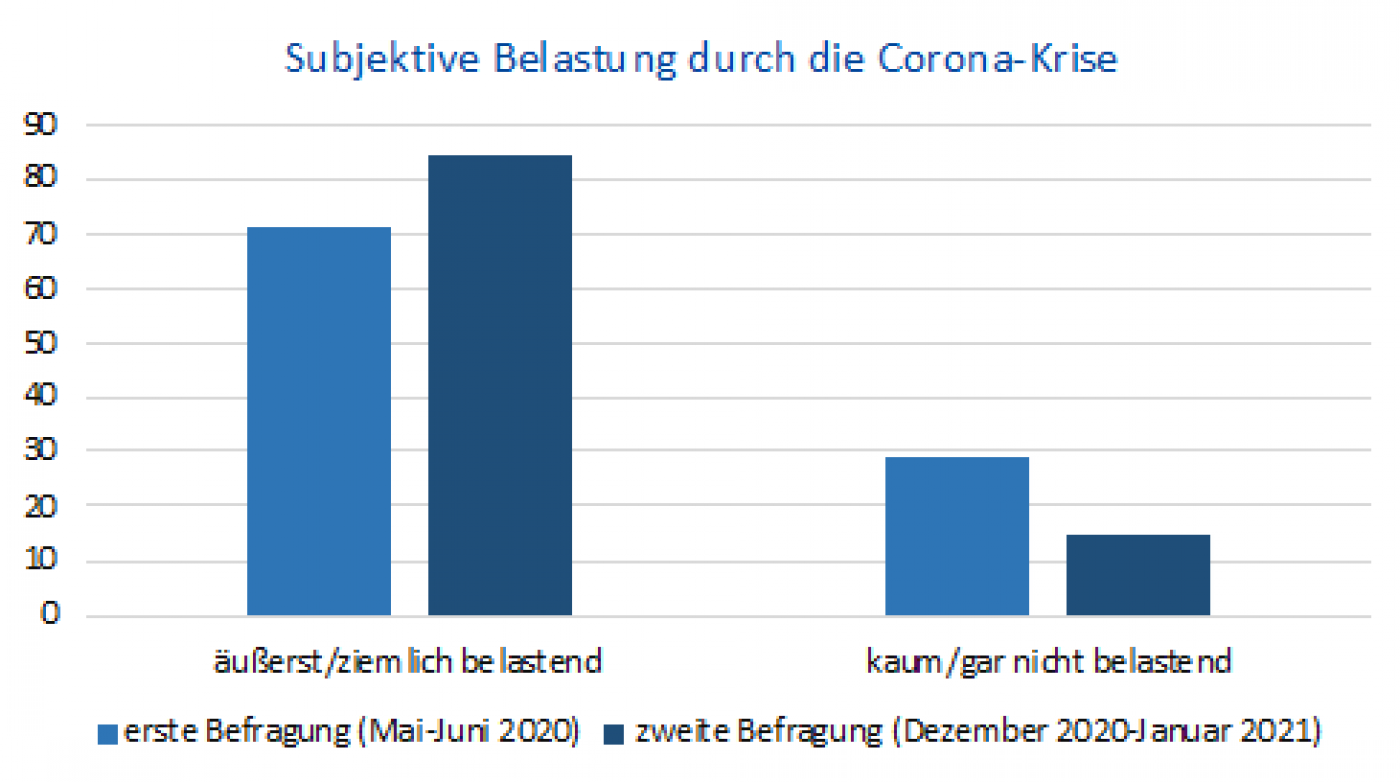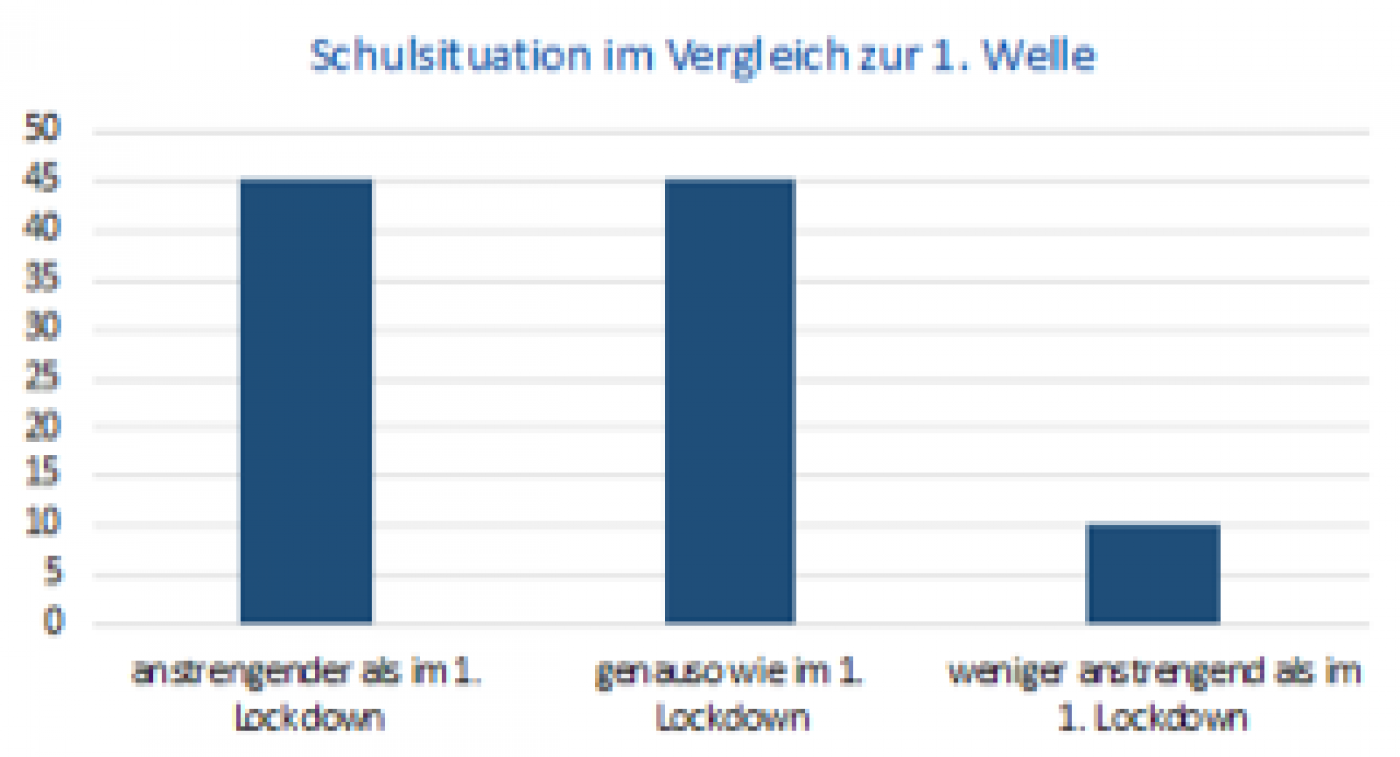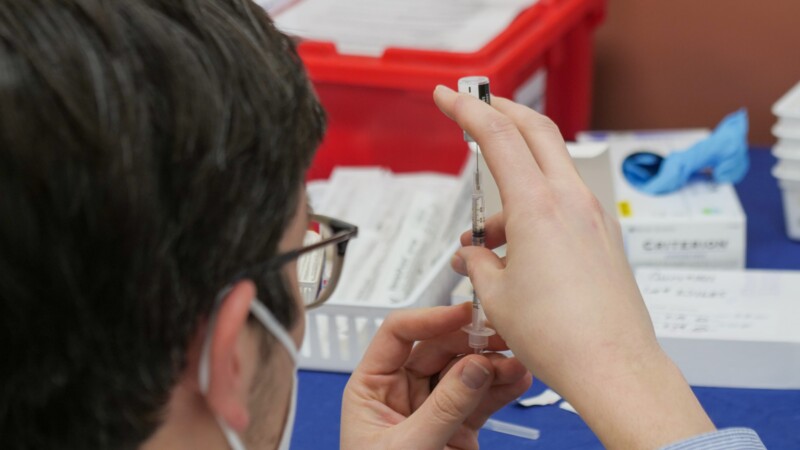Prof. Dr. Ulrike Ravens-Sieberer, head of the COPSY study and research director of the Department of Child and Adolescent Psychiatry, Psychotherapy and Psychosomatics at UKE, believes that those who were in a good position before the pandemic, are in familiar structures and are comfortable with their families, will weather the pandemic well. However, reliable concepts are needed to strengthen the mental health of children from at-risk families.
A year after the COVID-19 pandemic unfolded, the mental health of children and adolescents in Germany remains impaired, according to results of the second wave of the COPSY study by the UKE published Wednesday (February 10, 2021).
Nearly one in three children in Germany continues to suffer from mental health problems, including depression or stomach pain. Children from socially weaker backgrounds or with an immigrant background are particularly affected. Over 1,000 children and adolescents and more than 1,600 parents were surveyed online from December 2020 to January 2021. The results were compared with those of the first wave of the survey in June 2020. The survey is the first of its kind nationwide and one of the few longitudinal studies internationally, the UKE said.
Reliable concepts needed for children from at-risk families
Fears and worries grow among children
Four out of five of children and youths surveyed feel burdened down by the pandemic. Their quality of life had also deteriorated further with seven out of ten children reporting a reduced quality of life compared to only three out of ten respondents before the crisis. At the same time, the risk of mental health problems remains high. Fears and worries have increased significantly among children compared to the first survey. They show signs of depression or psychosomatic complaints more frequently.

More screen time, less sport
The healthy behaviour of children and youths has further deteriorated. Children are spending even more time in front of screens e.g. mobile phones, tablets, game consoles, and continue to eat unhealthily with lots of sweets and do significantly less to no sport at all. This is particularly worrying, according to Ravens-Sieberer. "Exercise is so important for the healthy development of children and youths. They also meet their friends during sports, learn how to fit into a team and deal with conflicts, victories and defeats."
Home schooling and work – parents reaching limits
Children and youths are also mentioning more quarrels with their families, increased problems at school and poorer relationships with their friends. Many parents feel weighed down by the ongoing pandemic and are increasingly showing signs of depression. "Parents seem to have adjusted to the demands of home schooling and the double burden of their work and are trying to manage as best they can. However, they are increasingly reaching their limits," said Ravens-Sieberer.

Child welfare risks – increase in number of unreported cases
This is associated with a presumably higher number of unreported cases of child welfare risks, a study by the Research Network for Medical Child Protection at UKE has found. Cases of child welfare risks in German children's hospitals and child protection outpatient clinics decreased by up to 20 per cent in the first lockdown (March/April 2020) compared to the same period in 2019. Thus, the number of unreported cases of child abuse and neglect may have increased further, the researchers suspect.
sb/pb
Sources and further information
COPSY Survey
Researchers at UKE investigated the impact and repercussions of the COVID-19 pandemic on the mental health and wellbeing of children and youths in Germany. After an initial survey in May/June 2020, more than 1,000 children and youths and over 1,600 parents were surveyed online in a second round (December 2020/January 2021). The survey focused on families with children aged seven to 17 years.
More
Similar articles

Hamburg reaches future contract with universities

Rising willingness to vaccinate in Europe, survey finds

Hamburg's startup scene on growth course despite corona
